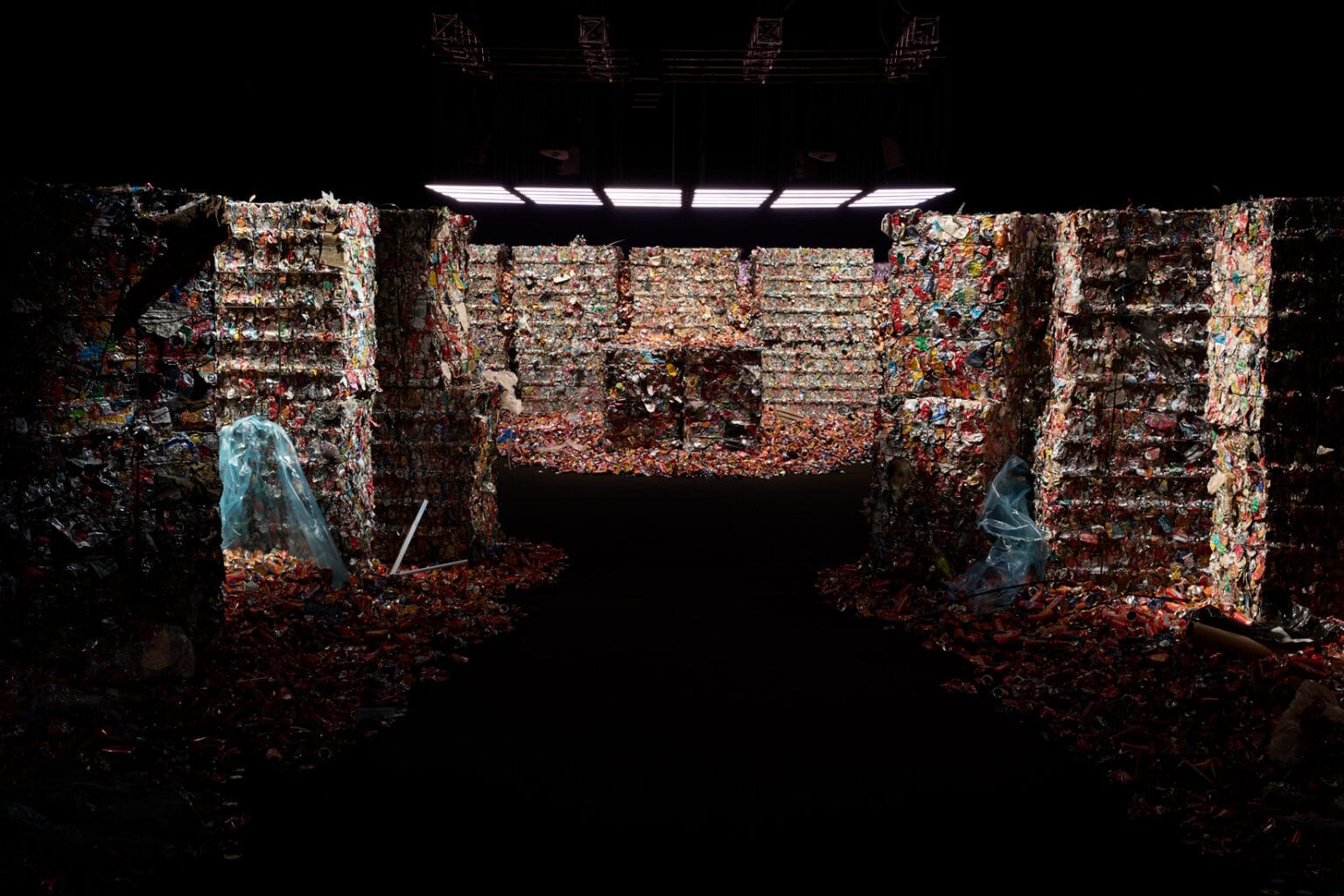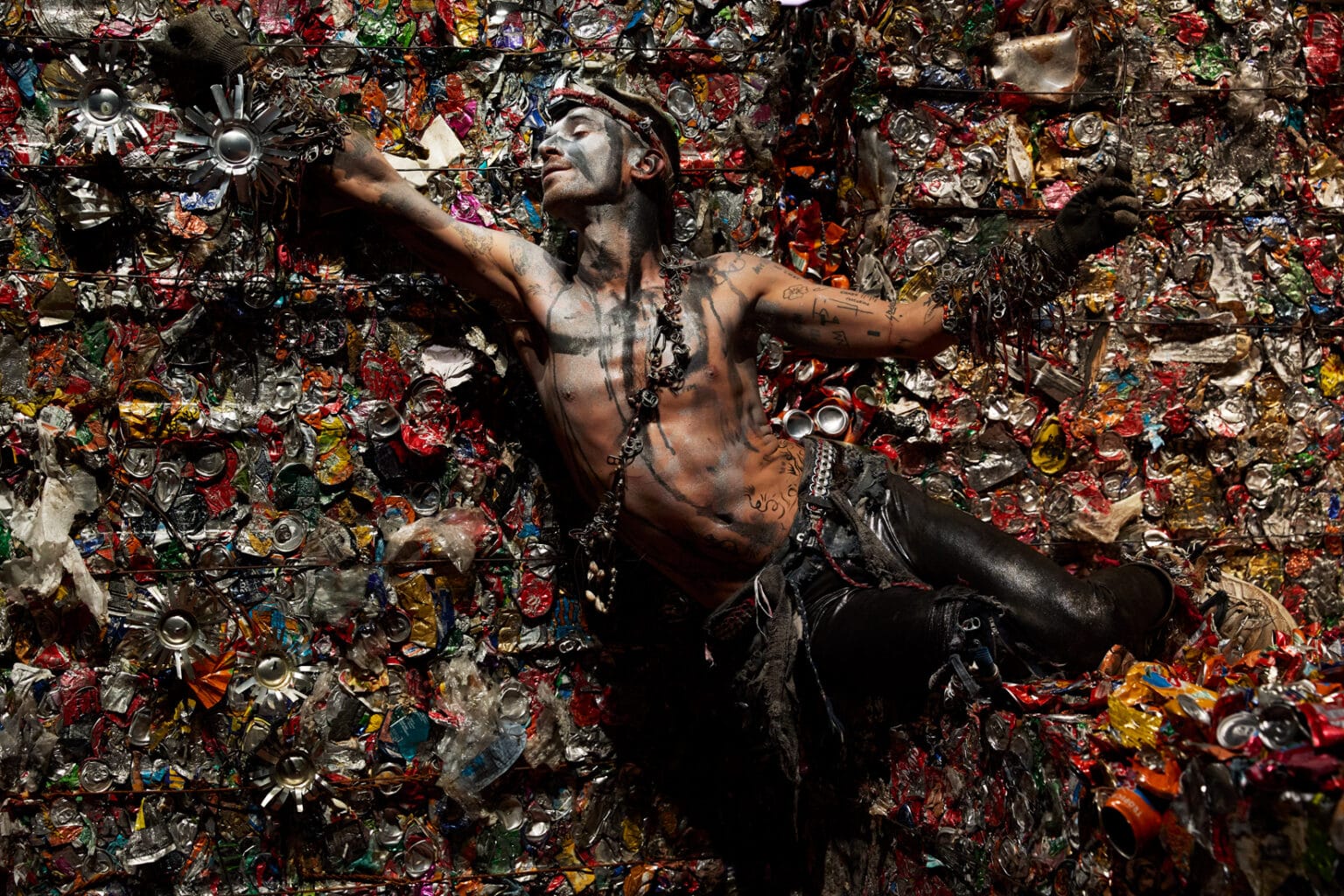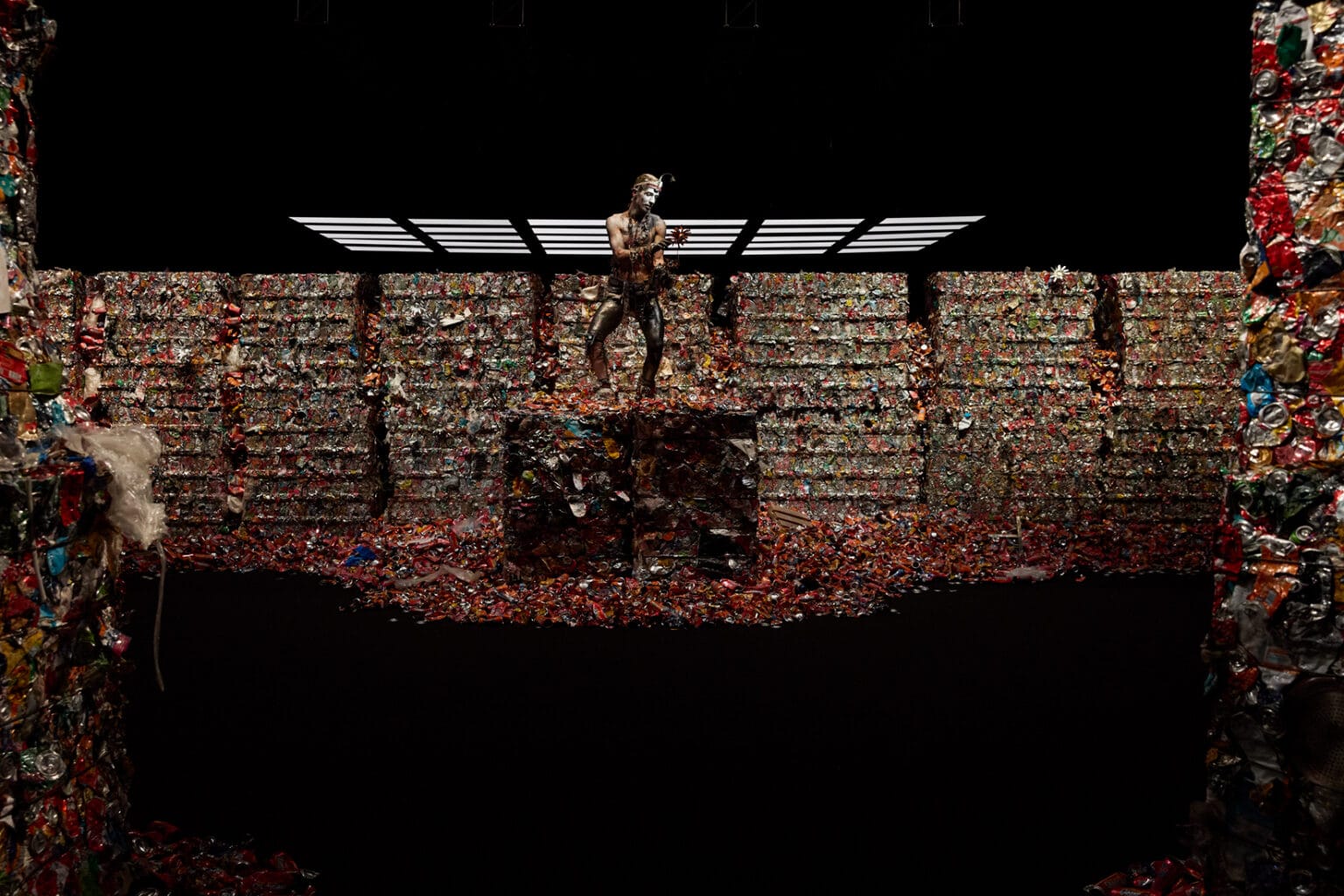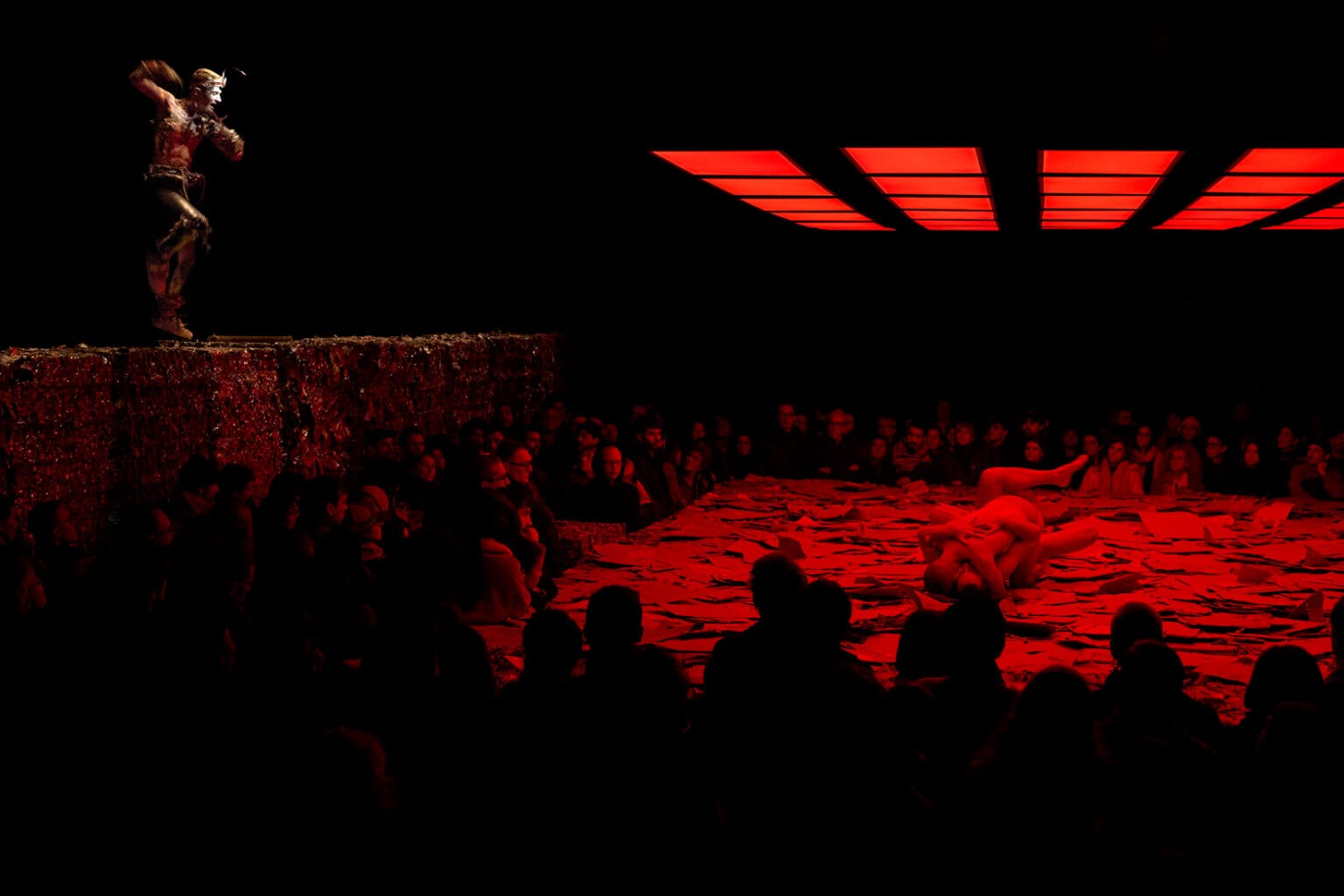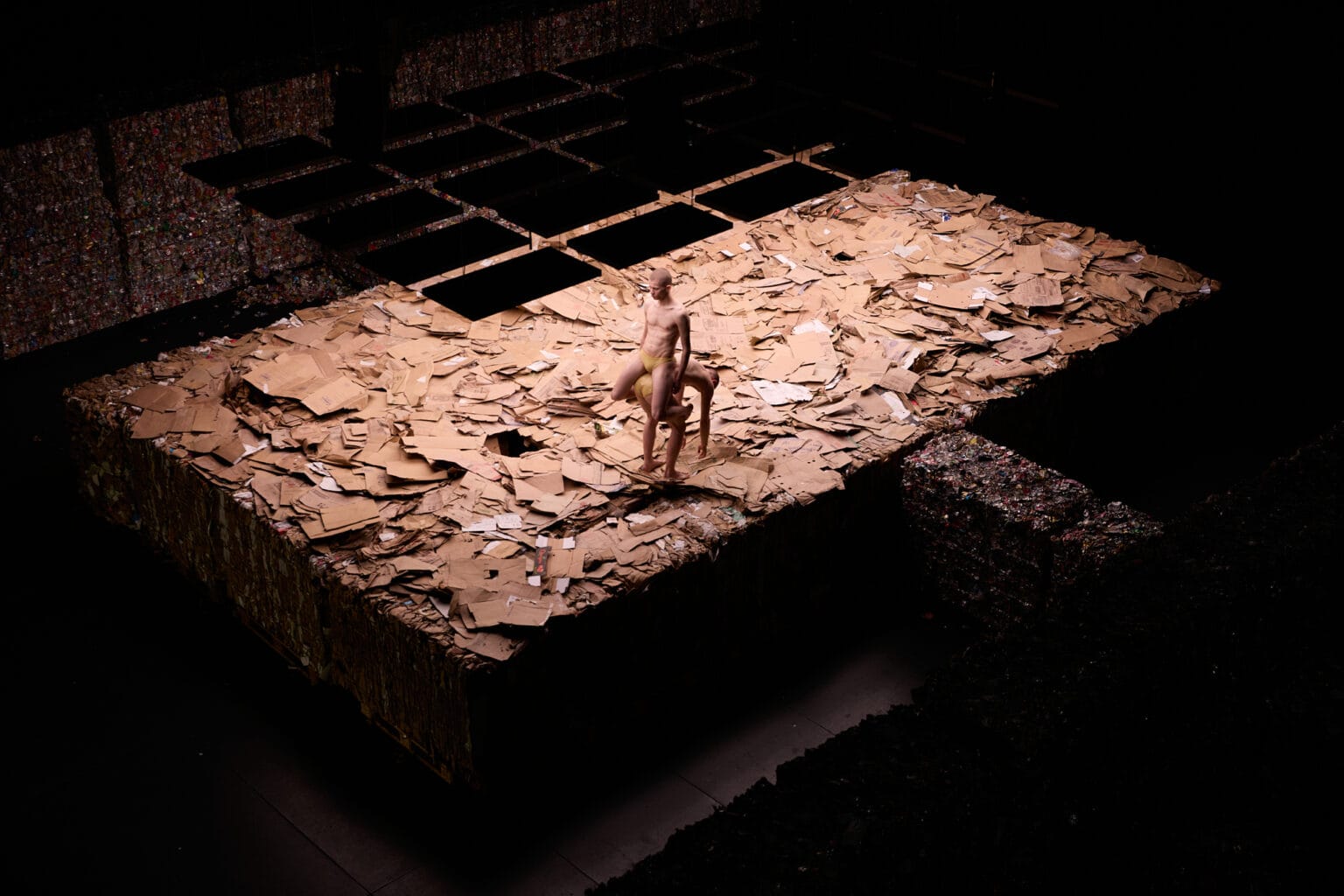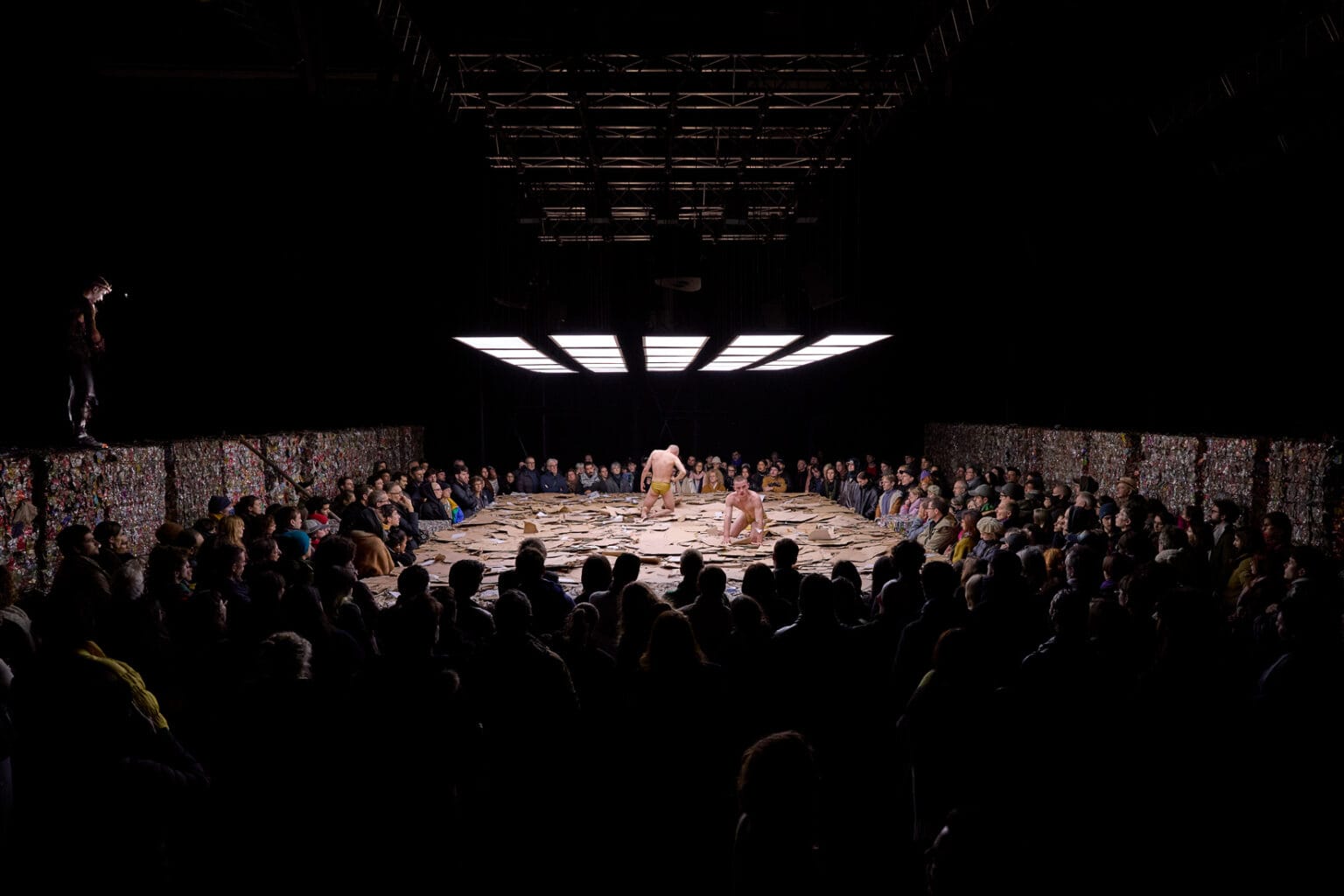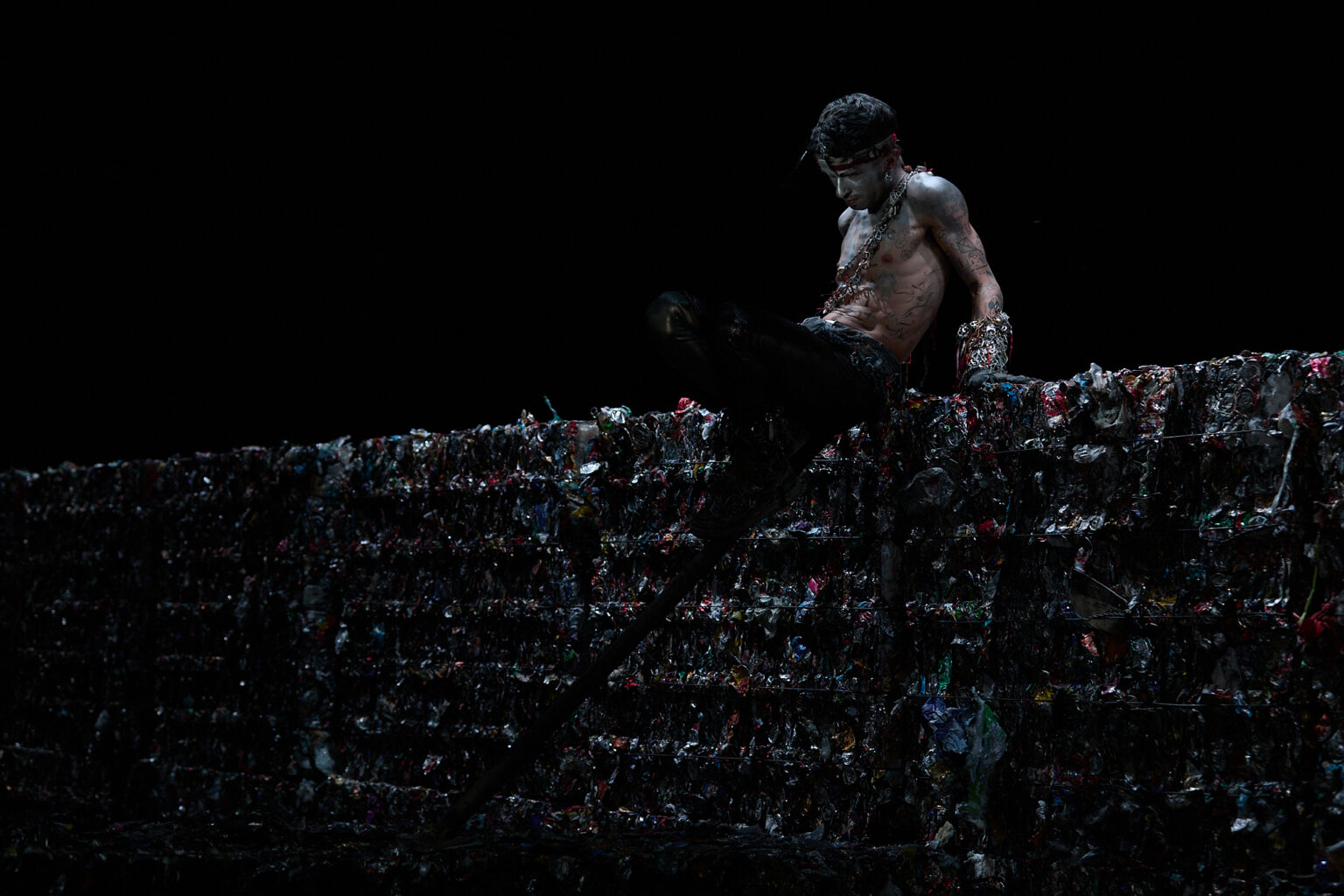Every day, behind city walls, faceless people love each other and meticulously build a continent of memories. When the end comes, love and desire are discarded like the packaging of a consumed product. What remains of these shattered feelings, this garbage among garbage that lies silently beneath the sidewalks of the present, or in the dustbin of the past? Like a plunge into the depths of eroticism and dirt, Skinless, Théo Mercier’s new performance piece, is a vast quadri-frontal device made of compressed garbage, in which three male characters evolve under the observing eye of standing spectators. This dystopian utopia features a three-headed couple living in the ruins of capitalism…
When the artificial lights come up on this end-of-the-world landscape, the audience finds itself surrounded by two high walls of scrap metal, and discovers an arena made of damaged paper in the center of the space. Here, two pseudo-masculine figures covered in latex second-skin move between the surface and the depths of a subterranean world to which we have no access. While they are at one with the environment of which they are the transforming agents, a third metallic character evolves alone in the peripheral corridors of the world above. He tirelessly comes and goes, like a mechanical angel or a love-hungry surveillance camera. In fact, it is through the eyes of this tragic character that the drama of this loving relationship engulfs us. Over the course of the play, the pseudo-boy couple mutates and mutates between the expression and repression of desire. If they digest the corpse of the world, they are also the essence of life: like the bed of detritus on which they lie, they are nothing other than the refuse of the past and the future remains of themselves. As in a love parade, these masculine Adam and Eve metamorphose, devour, dissolve, mix, incorporate and appropriate all that remains before our eyes. Together, they recycle their relationship ad infinitum, inventing an erotic language as vulnerable as it is visceral. Their language, unknown to all, would probably have the color of flesh and the smell of an open-heart dump.
At the heart of this inverted Garden of Eden, Skinless recounts the degenerate genesis of a love story as infertile as it is transgressive. For although detritus is the sole soil of this two-tiered eco-system, a clear division of roles seems to emerge. Like a demiurge of social tragedy, the invisible architect of this disenchanted world seems to rule the relationship and power dynamics of this trio with an iron fist. Faced with this empire of the norm, Skinless re-enacts the codes of Genesis in a deviant version. Waste, like homoeroticism, is seen as a means of protest and a way of making a mess of the world. For if infertile bodies are perceived as something that unbalances the “normal” world, the modes of relationship that Théo Mercier attempts to invent from the ruins are above all forms of love that inspire life itself. In a lyricism at once dark and hypertrophic, he stages a landscape and a performance that deliver to the public an emotional decryption of consumer society, a struggle against systems of control and, above all, a hymn to love and metamorphosis.
–
Created entirely from sorted and locally sourced waste, Skinless is also the fruit of an in-kind partnership with French sorting giant PAPREC, which supplies the material for the show throughout its tour of France and Europe. Building on his experiments with sand and borrowed ecology, Théo Mercier is developing a reflection on eco-responsible production methods.


